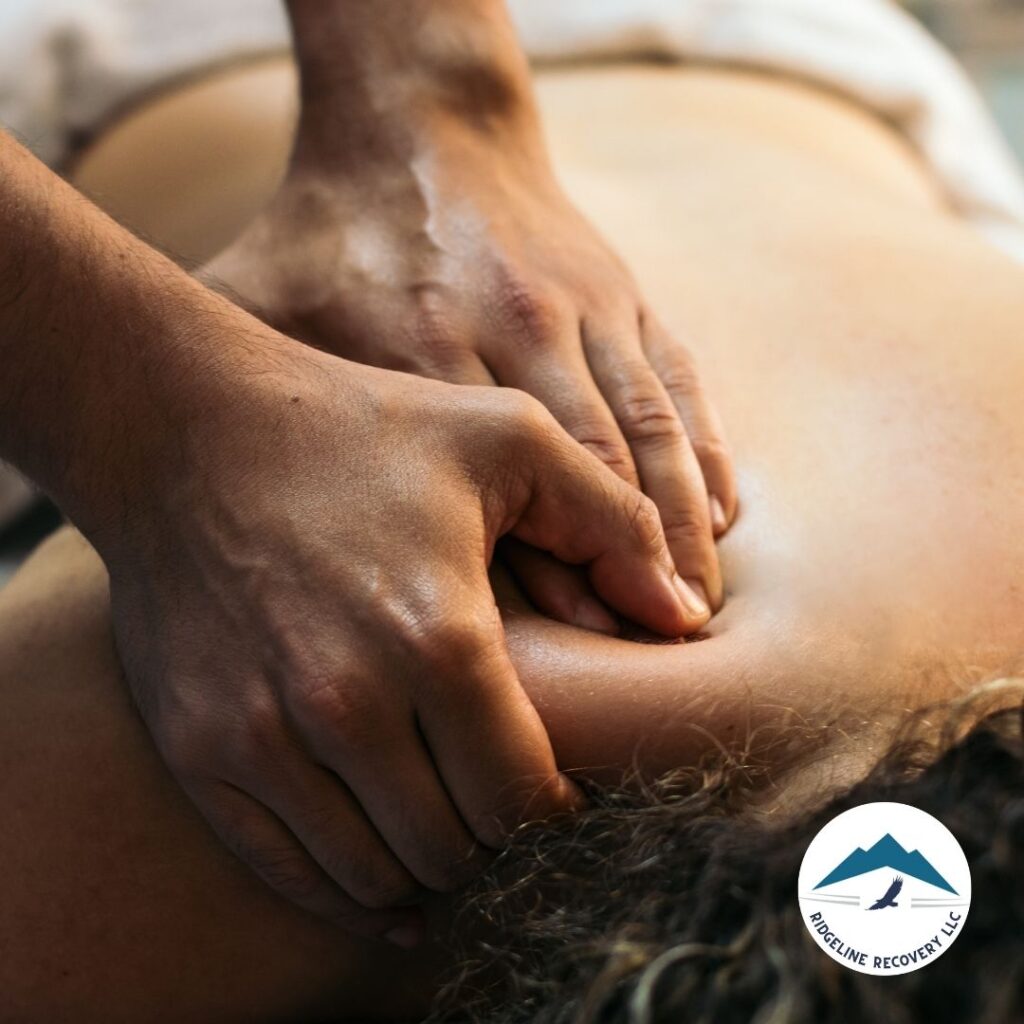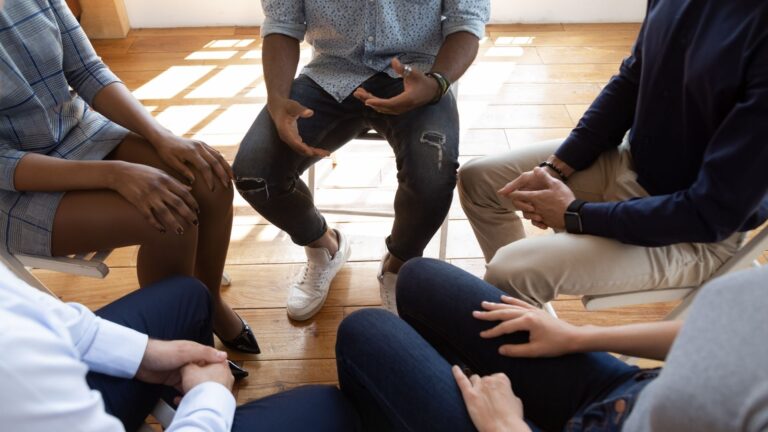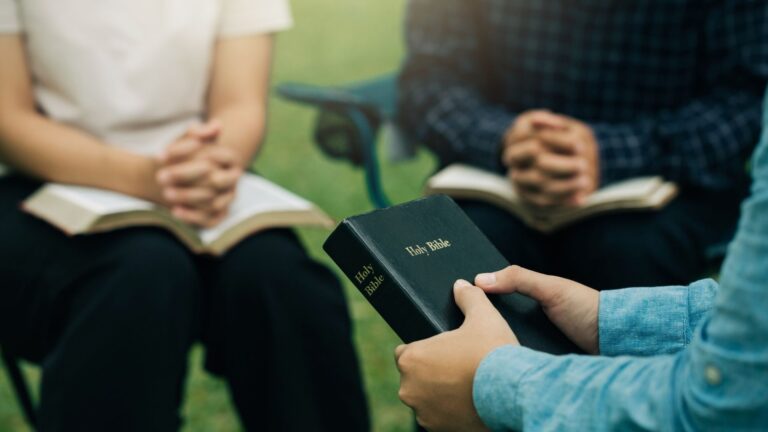Let’s be real for a second.
Addiction wrecks relationships.
Family, friends, partners—sometimes even yourself.
But here’s the good news: Addiction Recovery Columbus isn’t just about kicking a habit.
It’s about rebuilding everything addiction tore apart, one piece at a time.
The first question most people ask is: “How do I even start?”
The second: “Is it too late?”
Spoiler alert: It’s not too late.
Let’s dig into how you can repair relationships during recovery, step by step.
Why Relationships Matter in Recovery
Here’s the truth: addiction is isolating.
It pushes people away—sometimes the people you love the most. And without a strong support system, staying on track in recovery gets 10x harder.
Columbus has incredible resources, from addiction therapy near me to drug and alcohol treatment centers. But even the best treatment won’t mean much if you don’t address the damage addiction caused in your relationships.
A Quick Reality Check
Rebuilding relationships takes time.
Not everyone’s going to forgive you overnight—or at all.
But here’s what’s cool about Addiction Recovery Columbus:
- The tools are here.
- The support is here.
- You’re not doing this alone.
Step 1: Understand the Damage
Before you can repair anything, you’ve got to face what happened.
Avoiding it doesn’t work.
Let’s break it down:
The Impact of Addiction on Family
Families often bear the brunt of addiction.
Maybe it was broken trust, financial strain, or emotional wounds.
Programs like family therapy in Columbus help address this head-on.
They create a space where everyone can talk openly and honestly—without judgment.
Friends and Addiction
Some friends may have been your enablers, while others distanced themselves because they couldn’t watch you self-destruct.
The good news? True friends will often show up when you’re serious about recovery.
Romantic Relationships
Addiction can take a massive toll on romantic relationships.
Issues like codependency or lying about substance use leave scars.
But here’s the deal: with the right tools, those wounds can heal.
Step 2: Focus on Yourself First
You can’t pour from an empty cup.
Before you dive into fixing relationships, make sure your recovery foundation is solid.
Here’s what that looks like:
- Get into therapy. Programs like addiction therapy services or mental health clinics near me can guide you.
- Address your mental health. Depression, anxiety, or trauma often go hand-in-hand with addiction. Tackling these is key.
- Commit to your program. Whether it’s 12-step programs near me or long-term rehabilitation, consistency matters.
What About Guilt?
Guilt can be paralyzing, but here’s a shift:
Instead of letting guilt keep you stuck, use it as fuel to do better.
Programs like Addiction Therapy Columbus focus on emotional growth, helping you turn guilt into actionable change.
Step 3: Make Amends
This is where it gets tough—and meaningful.
Making amends is about more than saying sorry.
It’s about taking responsibility and showing you’re serious about change.
The Process
- Get honest with yourself.
What did you do, and how did it affect the other person? - Choose the right time.
Don’t ambush someone. Wait for a calm moment. - Own it completely.
No excuses. No “but you…” statements. - Ask how you can make it right.
Sometimes it’s as simple as listening. Other times, it might mean ongoing action.
What If They’re Not Ready?
Not everyone’s going to accept your apology. And that’s okay.
Remember: Addiction Recovery Columbus is about your growth.
You can’t control how others react, but you can control your commitment to being better.

Step 4: Build Trust
Trust isn’t given; it’s earned.
And after addiction, you’re starting from scratch.
Small Wins, Big Impact
Here’s how to rebuild trust, one step at a time:
- Consistency is king. Show up when you say you will.
- Keep your promises. Even the small ones.
- Be patient. Trust takes time, and pushing too hard can backfire.
How Columbus Helps
Programs like Addiction Therapy Columbus often include trust-building exercises.
From group therapy to one-on-one sessions, they give you the tools to reconnect authentically.
Step 5: Set Boundaries
Recovery is about protecting your progress.
And sometimes, that means setting boundaries—even with people you love.
Why Boundaries Matter
Boundaries aren’t about pushing people away. They’re about creating healthy dynamics that support your recovery.
Examples:
- Avoiding friends who still use.
- Limiting time with toxic family members.
- Saying no to situations that jeopardize your sobriety.
How to Communicate Boundaries
- Be clear. Explain why the boundary is important.
- Stay firm. Some people will test you—don’t cave.
- Reassure them. Let them know the boundary is about you, not them.
Columbus Resources for Rebuilding Relationships
Columbus isn’t just a city—it’s a hub for recovery support.
Therapy and Counseling
- Family therapy: Offered at centers like mental health clinics near me.
- Couples counseling: A must for repairing romantic relationships.
- Individual therapy: Work through your own emotions first.
Support Groups
Sometimes, the best insights come from people who’ve been where you are.
Check out:
- NA steps and AA groups.
- Community meetings focused on addiction recovery in Columbus.
Aftercare Programs
Once therapy ends, aftercare keeps you grounded.
Options include:
- Sober living houses.
- Ongoing sessions at a mental health clinic near me.
- Peer support groups.
Common Challenges (And How to Overcome Them)
Relapse
Relapse doesn’t mean you’re back to square one.
Here’s how Columbus programs handle it:
- Immediate support from inpatient rehab for drugs or outpatient care.
- Adjusting your treatment plan to address what triggered the relapse.
Feeling Overwhelmed
Rebuilding relationships while staying sober can feel like too much.
Solution? Break it down. Focus on one relationship—or one step—at a time.
Doubts About Worthiness
Struggling with self-worth? You’re not alone.
That’s why programs like holistic therapies include mindfulness practices to help you reconnect with yourself.
Why “Addiction Recovery Columbus” Could Be the Best Thing for Your Relationships
When you hear the term “Addiction Recovery Columbus,” you might only think of quitting substances.
But recovery is bigger than that—it’s about repairing your life, piece by piece, starting with relationships.
Why relationships? Because people are your lifeline. They’ll support you when things feel impossible.
Here’s how Ridgeline Recovery and Columbus’s robust recovery network help you rebuild connections, step by step.
Step 6: Prioritize Forgiveness (For Yourself and Others)
You know that heavy feeling? The one that keeps you up at night, replaying your mistakes?
That’s guilt.
Guilt can either fuel your recovery—or destroy it.
Here’s what Addiction Recovery Columbus teaches:
Forgiveness is a two-way street.
How to Forgive Yourself
Let’s start here because, honestly, it’s the hardest part.
Addiction thrives on self-loathing. The longer you hate yourself, the harder it is to stay sober.
Try these steps:
- Own your mistakes. Don’t sugarcoat what happened.
- Separate yourself from your actions. You’re not a bad person—you made bad choices.
- Use affirmations. Corny? Maybe. But telling yourself, “I’m worthy of love and recovery,” works over time.
Forgiving Others
Maybe someone hurt you during your addiction journey. Or maybe, their actions contributed to your struggles.
Forgiveness here isn’t about excusing bad behavior—it’s about freeing yourself from resentment.
Here’s how Columbus resources, like mental health therapists near me, help:
- Counseling sessions to process trauma.
- Tools to set healthy boundaries moving forward.
Step 7: Rebuilding Trust with Kids
If you’re a parent, repairing the bond with your kids is probably one of your biggest priorities.
Kids may not fully understand addiction, but they feel its impact.
How Addiction Affects Kids
- Emotional distance: They might feel like you weren’t “present.”
- Fear or instability: Addiction can create chaos at home.
- Mimicking behaviors: Kids often model what they see, good or bad.
How to Reconnect
- Be consistent.
Show up when you say you will. Over time, they’ll see you mean it. - Communicate honestly.
Age-appropriate honesty is key. Explain what happened without overwhelming them. - Get professional help.
Family-focused programs in Addiction Recovery Columbus can bridge the gap.
Holistic Approaches to Repairing Relationships
If traditional methods don’t resonate, Columbus offers holistic therapies designed to heal mind, body, and relationships.
Why Holistic Therapies Work
Addiction isn’t just physical—it’s emotional and spiritual, too.
Programs like yoga, meditation, or art therapy help you reconnect with yourself.
And when you feel whole again, it’s easier to connect with others.
Options in Columbus
- Yoga therapy sessions at Ridgeline Recovery.
- Mindfulness workshops focused on emotional healing.
- Group art projects that encourage vulnerability and bonding.
Step 8: Rebuild Community
Recovery is more than individual work—it’s about finding your people again.
The Role of Community in Recovery
Isolation is a breeding ground for relapse.
When you’re part of a supportive community, you’re constantly reminded you’re not alone.
Resources for Community Building in Columbus
- Support groups: NA and AA meetings in the Columbus area.
- Sober living houses: These spaces foster accountability and camaraderie.
- Group counseling sessions: Rebuild connections while sharing your story.
Step 9: Plan for Long-Term Relationship Success
Quick wins are great, but real growth happens over time.
Long-Term Relationship Strategies
- Regular check-ins: Whether it’s family or friends, consistent communication matters.
- Keep learning: Programs like long-term drug rehabilitation or mental health services can keep you on track.
- Celebrate progress: Don’t wait for huge milestones. Celebrate small victories together.
How Ridgeline Recovery Helps
Ridgeline Recovery LLC specializes in creating long-term success plans for individuals in Addiction Recovery Columbus.
From family counseling to community integration, they’ve got you covered.
Real Stories of Relationship Repair
Sometimes, the best motivation comes from seeing it’s possible.
Sarah’s Story: Reconnecting with Her Parents
Sarah had been through multiple rehabs before finding success at a drug rehab center in Columbus.
Her addiction had destroyed her relationship with her parents.
With help from family therapy programs and consistent work, she slowly earned back their trust.
John’s Story: Mending Friendships
John lost almost every friend he had due to his addiction.
After committing to addiction therapy services and showing up sober to events, he gradually rebuilt those bonds.
Why Repairing Relationships Should Be Your Priority in Recovery
In recovery, it’s easy to think the battle ends when you stop using.
Spoiler alert: That’s just the first step.
Addiction Recovery Columbus teaches that a full recovery doesn’t just rebuild your life—it rebuilds your relationships.
Think about it. Relationships are a big reason people stay clean.
Let’s explore how to create bonds that not only survive your recovery but thrive because of it.
The Role of Accountability in Recovery
Accountability isn’t just about checking off steps on a recovery plan.
It’s about surrounding yourself with people who:
- Call you out when you’re slipping.
- Remind you of your goals when temptation strikes.
- Celebrate your wins (even the small ones).
Columbus has incredible options like support groups and mental health services near me that foster accountability through relationships.
Step 10: Learn the Art of Active Listening
If you want to repair relationships, you need to listen. Not the “waiting-for-your-turn-to-speak” kind of listening.
But real, intentional listening.
How to Practice Active Listening
- Be present.
Don’t think about your rebuttal—focus on their words. - Ask clarifying questions.
Instead of assuming you understand, say, “What do you mean by that?” - Mirror their feelings.
“It sounds like you felt hurt when I did that. Is that right?”
Learning this skill isn’t just good for recovery—it’s a life game-changer.
Step 11: Set Boundaries
Boundaries are non-negotiable in recovery. Without them, relationships can get messy.
Why Boundaries Matter
Let’s be real: Some people in your life might still be toxic.
Setting boundaries protects you from relapse and helps rebuild healthy connections.
How to Set Boundaries in Columbus
- Use tools from mental health counselors near me to learn assertive communication.
- Write down non-negotiables: “I won’t attend events where substances are present.”
- Practice saying no without guilt.
Step 12: Repair Romantic Relationships
When addiction hits, romantic relationships often take the biggest hit.
Addiction Recovery Columbus shows that while these relationships can be the hardest to fix, they’re also the most rewarding.
Steps to Repair
- Start with honesty.
Admit where you went wrong. Own it. - Rebuild trust through action.
Words are cheap. Show them through your behavior that things are different now. - Seek couples therapy.
Many mental health clinics near me offer counseling designed for couples in recovery.
When It’s Time to Let Go
Not every relationship is meant to survive addiction.
And that’s okay.
Columbus resources like addiction therapy near me can help you navigate these tough decisions.
Using Columbus Support Networks to Rebuild Trust
You don’t have to do this alone.
Columbus offers everything from 12-step programs near me to specialized therapy services to help you rebuild relationships.
Top Columbus Resources for Relationship Healing
- Ridgeline Recovery: Offers family-focused therapy to strengthen connections.
- Vivitrol Clinics Near Me: Helps manage cravings, giving you space to work on relationships.
- Community Support Groups: Safe spaces to learn and grow together.
Step 13: Navigating Family Dynamics
Family relationships are complicated on a good day.
Add addiction to the mix, and you’re looking at layers of hurt and misunderstanding.
Common Challenges
- Blame: Family members may still blame you for past actions.
- Mistrust: They’ve heard “I’ll change” before.
- Enabling: Some families don’t know how to stop enabling behaviors.
How to Rebuild
- Acknowledge their feelings.
Even if you don’t agree, validate their experience. - Set realistic expectations.
Don’t expect immediate forgiveness—it’s a process. - Engage in family counseling.
Programs like addiction recovery Columbus integrate family therapy to address root issues.

Long-Term Strategies for Relationship Growth
Recovery isn’t a one-and-done deal. Neither is repairing relationships.
Here’s how to stay consistent over the long haul.
Keep Showing Up
Consistency builds trust.
Whether it’s a weekly phone call or attending family events sober, small actions add up.
Embrace Lifelong Learning
Columbus offers workshops and resources, like mental health treatment centers near me, to help you keep growing.
Celebrate Progress
You’re going to have wins—big and small.
When they happen, acknowledge them. Celebrate with the people who supported you.
Step 14: Leverage Community for Accountability
Remember when we talked about community? Let’s dive deeper.
Why Community Matters
Isolation is one of the biggest relapse triggers.
When you’re part of a community, you’re constantly reminded that you’re not alone.
Building Your Recovery Circle in Columbus
- Sober houses: Safe, substance-free living environments.
- NA Steps: Structured programs for accountability and growth.
- Group therapy: A space to share and learn from others’ experiences.
FAQs
What if My Family Doesn’t Want to Repair the Relationship?
This is common, especially early in recovery.
Focus on your personal growth. Over time, they may see your progress and come around.
How Do I Find the Best Programs in Columbus?
Search for addiction therapy near me or check out Ridgeline Recovery at 491 Georgesville Rd. They’ve got options tailored for every stage of recovery.
Can I Repair Relationships While in a Sober House?
Absolutely. In fact, many sober living houses encourage family visits and offer family therapy.
Can I Repair Relationships If I’m Still Early in Recovery?
Yes, but start slow. Focus on building your foundation first.
What If Someone Doesn’t Want to Forgive Me?
You can’t force forgiveness. Focus on doing the work and let time take care of the rest.
How Do I Find Support in Columbus?
Search for addiction recovery near me or mental health services near me to find local resources.
Final Thoughts
Here’s the thing: repairing relationships during Addiction Recovery Columbus isn’t just possible—it’s transformative.
It’s not about going back to who you were before addiction.
It’s about becoming someone even better.
Ready to start? Call Ridgeline Recovery LLC at 614-618-5000 or visit www.ridgelinerecovery.com.
Your future—and your relationships—are worth it.
Call Us Now!
If you or a loved one is struggling with heroin or alcohol dependency, reach out to Ridgeline Recovery Center in Columbus, Ohio, today. At Ridgeline Recovery, we offer a path to hope and healing. Our comprehensive Addiction Recovery services include Addiction Therapy, Addiction Treatment, Vivitrol Clinic and specialized Mental Health Services designed to support your journey to recovery.
We provide Aftercare Programs and Peer Support to ensure you have ongoing assistance after treatment. Our dedicated team offers Case Management and Child Services for those needing extra support. For individuals who prefer a faith-based approach, we offer Faith-Based Recovery options.
Our programs feature Group and Individual Counseling, along with Medication-Assisted Treatment (MAT) to address your unique needs. We also have an Intensive Outpatient Program (IOP) and a Partial Hospitalization Program (PHP) for more structured care.
Our team includes Registered Nurse Services, Psychiatric Services, and Therapeutic Behavioral Services (TBS) to provide comprehensive support throughout your recovery process. We work with various Insurance Coverage plans to help you access the care you need.
Don’t wait—contact us now to start your journey toward a brighter future with Ridgeline Recovery.
For more stories and information Contact Us, visit our Blog page and Stories & Highlights.







